Barbie: Gen X to Gen Z
From My First Barbie to pukey pink to not wanting to be fatter than the guy: I never wanted to see Barbie again. And now Gen Z's got me rethinking.
Barbie is big in my house right now. Kind of for the first time. I didn’t necessarily ban Barbie. But she got overshadowed by my daughter's American Girl dolls and Polly Pockets, and my sons’ dinosaurs. As my kids got older, they all wanted other 80s or 90s nostalgia properties.
From Star Wars and Jurassic Park in the 2010s, to Top Gun and Indiana Jones more recently. Even when it’s not one of the slew of sequels or reboots out there, they’re watching new shows that are hyper-referential to my coming of age, like Stranger Things.
I feel like I’ve spent the past five years looking into a hypnotic spiral, going into the past, layer by layer. Lately, my older kids — dressed in 90s jeans, faded oversized t-shirts, and white Reeboks — are saying “Hi Barbie.” So is everyone else, it seems. Each time I think: “Why can’t we all move on from Barbie and just call her what she is: another 20th-century mistake.”
I’ve met Barbie before. Most of the time, they weren’t pleasant growing-up experiences.
My First Barbie
Not gonna lie, the first time I met Barbie, I really liked Barbie. It was Christmas 1981. My First Barbie wore a wrap bright yellow pantsuit and a side ponytail. I felt the power of the female form in my hands when I held her, and I knew I wanted that too.
Unlike a superhero, Barbie’s power was real. I saw my mom get it when she lost the frumpy mom, baby-every-other-year body left over from the 70s. Like my mom, early-80s Barbie still had a touch of disco-glam mixed in with a ready-for-the-office daytime look too.
“That’s your mom?” other kids would ask when they saw her. “She’s so pretty.” But not everyone was happy for my mom in her glow-up moment. There was only one main character in my parents’ marriage — and my dad would never be just Mike.
The following spring, I wanted Pink & Pretty Barbie and thought she’d be perfect for my Easter basket. Instead, I got a record with a clearance sticker: “Hot Child in the City” — a song collectively erased from our memories because, what the hell?!
I’d heard the song before and liked it. And grew to like it even more. I’d listen to the melodic chorus “Young child / Runnin’ wild and looking pretty,” while holding Barbie, sitting on the apricot plush living room carpeting. My imagination went wild, and a seed was planted: maybe I could skip being Skipper and go straight to Barbie.
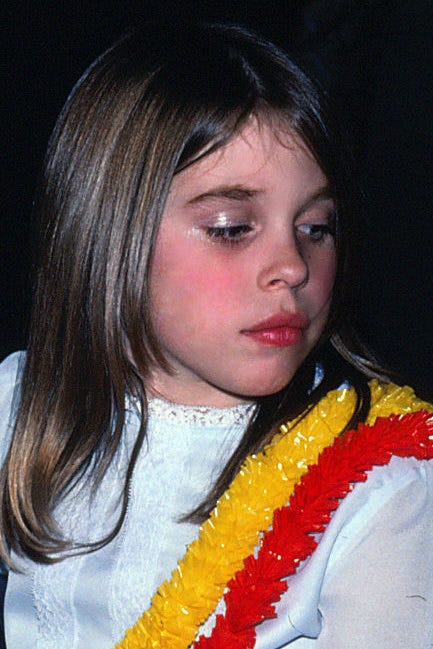
“If my life problems aren’t big deals to others, why do they feel like they are to me?”
It’s normal for kids to relate to an older experience. That was definitely the norm when I was growing up. Tweens read Teen. Teens read Cosmo. And all the heartthrob posters hanging on my bedroom walls were of guys a minimum of five years older. But Barbie wasn’t just older. She was hypersexualized and with fantasy proportions. At seven, I had no chance at coming close to that, but my innocence was starting to chip away.
Barbie pukey pink
When I was nine, I started spending more time with Barbie. My mom was making more buying decisions and becoming more assertive in the months leading up to the start of my parents’ divorce. For my 9th birthday, she got me a Barbie Dream House. And soon, it was filled with more Barbie friends, sofas, an acrylic-topped dinette set, a four-poster bed, a luxury spa bathtub, and kitchen appliances. Guilt presents? Maybe, but I wasn’t gonna complain.
Christmas 1983 marked the end of my Barbie friendship. It was during the heat of divorce. I spent Christmas Eve with my dad, grandpa, and three brothers. The whole night was hearing dad fill grandpa in on every detail of the divorce.
Buying presents was the last thing on my dad’s mind. Besides, he had no money left after paying his lawyer — and a private detective to look into my mom’s new mysterious boyfriend who had past ties to the mafia. (Note: Despite this sounding like some sort of made-up plot to a film noir, I’m being dead serious.)
My mom picked us up Christmas morning with her new boyfriend. I’d met him before. He was nice, but like really old — almost 50. And he had a drinking problem. But they were in love in a way that made me feel nauseated. Being drunk and in love seemed to make grownups act doubly weird.
All around me, I watched the adults I depended on laugh and pretend like everything was OK. Inside, I felt scared. I knew my mom and her boyfriend’s relationship would be life-changing for me, even though I had no idea how. Looking down at my pile of Barbie presents, all I saw was pukey pink. Barbie was making me feel sick.
Purple was my new color
When I was eleven, Barbie briefly returned a year after I kicked her out of my life. Ken was there too.
At the beginning of fifth grade, my teacher sensed something was wrong with me, so she arranged for me to meet with the social worker. Having a neutral person to open up to was such a relief. I had a spot on my hand I’d been picking at, trying to find someplace to put all the bad feelings.
During our weekly sessions, my school social worker started bringing Barbie and Ken out. Before long, Barbie's clothes came off. Then, the social worker’s questions started veering off to ones about touching, inappropriate touching. Once sexual abuse was ruled out, my counseling abruptly ended.
Of course, I knew sexual abuse was far worse than anything I’d experienced. But now I felt like something was wrong with me because I was having such a hard time handling stuff like being left alone at a Chicago Cubs baseball game while my soon-to-be stepdad went off drinking. Or hearing my dad calling my mom a whore. Endless chaos and conflict. “What’s wrong with me?” I thought. “If my life problems aren’t big deals to other people, why do they feel like they are to me?”
I wanted my own freedom, so I didn’t have to depend on anyone else. So instead of wanting to play Barbie, I wanted to become her … fast.
Growing up in a race against time
When I met Barbie at 15, she showed up in my emerging curves.
Almost overnight, everything changed when my body started looking more like a woman’s. I was like a Barbie girl in a gritty world. People thought I was old enough for my first over-20 boyfriend. Old enough to be backstage at glam-metal concerts. Old enough to be alone in a hotel room with a lead singer twice my age that I first saw watching MTV.
He tried pressuring me to get in the shower with him. “I was hoping to see that,” he told me after I refused. “What are you talking about?” I asked. “Your ass,” he said, reminding me Barbie isn’t “everything.” She’s just parts. And someone always wants a piece of her.
When I met Barbie at 16, I saw her in my reflection.
“You look like a Barbie doll,” someone told me at my skinniest point. Too weak to feel anything. Too malnourished to have a period. I was dating a super-thin guy then. He offered me the very important role of his band’s “water girl.” I described him in my diary and then wrote: “That’s why I’m not eating right now. I don’t wanna be fatter than the guy.” Barbie had to be skinnier than Ken.
Barbie isn’t “everything.” She’s just parts. And someone always wants a piece.
Metal music misogyny
A guy in a hairband didn’t need to be buff Ken. He didn’t even need to be musically talented. If he had the hair, the clothes, and some swagger, anything else just put him over the top.
Chicks, on the other hand, needed a Barbie thigh gap, the biggest boobs possible, and a 25-inch waist. My numbers from a scale and a tape measure helped me make sure all my Barbie parts came as close to conforming as possible. But eventually, biology always wins — the body does what it wants. I became human again, and I was mad.
My friends and I had girl-band plans. Lots of girls did after watching ever-cool Justine Bateman in the late-80s movie Satisfaction. Teenage dreams are the sweetest things, no matter how unrealistic. I stopped playing piano to learn to play guitar but quit after a year. Every guitar teacher I encountered was so creepy — even in school. But the sexism problem wasn’t just in my little world.
After several years of going to Chicago metal concerts — from small venues like The Thirsty Whale and The Vic to huge arenas — the only woman I saw perform was Joan Jett, and it was in a partially-filled community college gym.
I started understanding how my own life experiences were connected to something bigger and majorly screwed up.
Getting “deprogrammed” — a long process
By 18, I never wanted to meet Barbie again.
In 1991 I wrote: “I’m so sick of everything! I’d rather be alone than with some guy who only thinks about manipulating naive girls into bed. I’ve had enough experience with that ‘type’ to know how condescending it feels to be pursued by them, thinking you’re too dumb, ditzy, emotional, or blonde to understand their game.”
That year I read Susan Faludi’s Backlash book cover to cover. I started understanding how my own life experiences were connected to something bigger and majorly screwed up. And it helped me move from my Barbie phase to books and chemistry, where I found myself.
In 1992 I wrote: “God gave me an okay face. A body I HATE (but can make bearable) and a wonderful mind that’s always thinking. When I was in HS a lot of people thought I was dumb. I felt dumb. I wasn’t dumb. I just hardly ever went to class.”
Rediscovering myself in college saved me. My headspace became a safe place where I could learn new things and new ways of thinking. I could fill it with whatever I wanted. No one could grab it, invade it, or take it away. Someone could undress me with their eyes, but no one could read my mind.
But clearly, this was only a start to becoming “deprogrammed.” My own internalized misogyny showed up in the phrase: “naive girls.” I still blamed myself for being one of those “other girls.” It’s in the way I shifted my focus toward performative success in school so I could “prove” I was worthy — even to myself. And no matter what else I did or accomplished, those Barbie standards that led to self-hatred about my body stuck with me … for years. And maybe, are still with me?
This Greta Gerwig-y version of Barbie pokes fun at her checkered past while giving her a progressive face lift and more narrative substance.
Being Gen Z-fluenced
After thinking through and understanding why old Barbie bothered me so much, I decided I was ready to meet new Barbie. I wanted to see her through my kids’ eyes. But I’m glad I waited until I processed my old relationship with Barbie. And I completely understand why many will never see the movie. That’d probably be me if I weren't so Gen Z-fluenced.
I finally saw it with my daughter this past weekend on my 49th birthday.
Barbie is about mothers and daughters separating and learning from each other. And Barbie is very much a marketing scheme. I get that. Like their peers, my kids do too. They’re fully aware and skeptical of capitalistic tricks.
This Greta Gerwig-y version of the doll speaks to Gen Z, breaking down the fourth wall to poke fun at Barbie’s checkered past while giving her a progressive face lift and more narrative substance. But yeah, Barbie’s still carrying some of her same toxic baggage.
For my older kids and their peers, Barbie has been a respite from their own coming-of-age weighty stuff: COVID isolation, doomsday fears, environmental warnings, multitudes of injustice, and institutional decay. Plus, there’s fun music and fashion. They get to be out with friends. And they get to try out a range of gender expressions — everyone can wear pink.
Sure, I could come up with a long list of problems with the movie — there are lots. And I agree with many I’ve heard. But there’s a lot to love about the messages in the movie too.
Like how important it is for moms to heal their own wounds and reclaim their own dreams rather than placing them on their daughters. For me, that’s what I’m trying to do through writing.
And how Kens need to start realizing they don’t need to stay boxed in by gender either. As a mom to three boys, I especially loved this.
And how internalized misogyny is so pervasive, runs so deep, and needs to be called out. I’ve seen it in myself and my family. But recognizing it is just a start — it needs to end.
And how it’s unhealthy to be entirely defined by any one relationship or job or aesthetic. I couldn’t agree more: enmeshment is not true love. After 29 years of marriage, my husband and I are closer because we have separate identities.
Final thoughts
Do I still feel mixed about Barbie? Yes. Some cognitive dissonance seems unavoidable in life — and definitely within the patriarchy, as pointed out in the movie. But I don’t have it in me to fight every fight or even know if I should.
Ultimately, I’ll always choose the world as it’s becoming rather than the one from the past after I’ve had time to process and learn. As I do, spending time with young people — not just my own kids — makes me more hopeful about the future.
I’m also trying to keep in mind that one person’s feel-good nostalgia can be another person’s nightmare. And I remind myself if someone seems emotionally upset about something from the past, there’s a reason. Just believe them.
Related reading:
GenX and ’80s Control Culture: Isn’t it ironic?
Crazy-ass things people told me years ago
'90s teen stories about fat phobia, cool guy jerks, and creepy men
Better not get him in trouble
The mixed messages made it hard to figure anything out as a '90s teen: stand out, but blend in; be strong, but not bitchy; be smart, but not too smart; compete with males, but not directly; be sexy, but don’t get him in trouble.


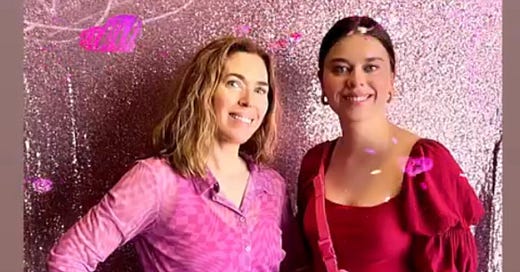


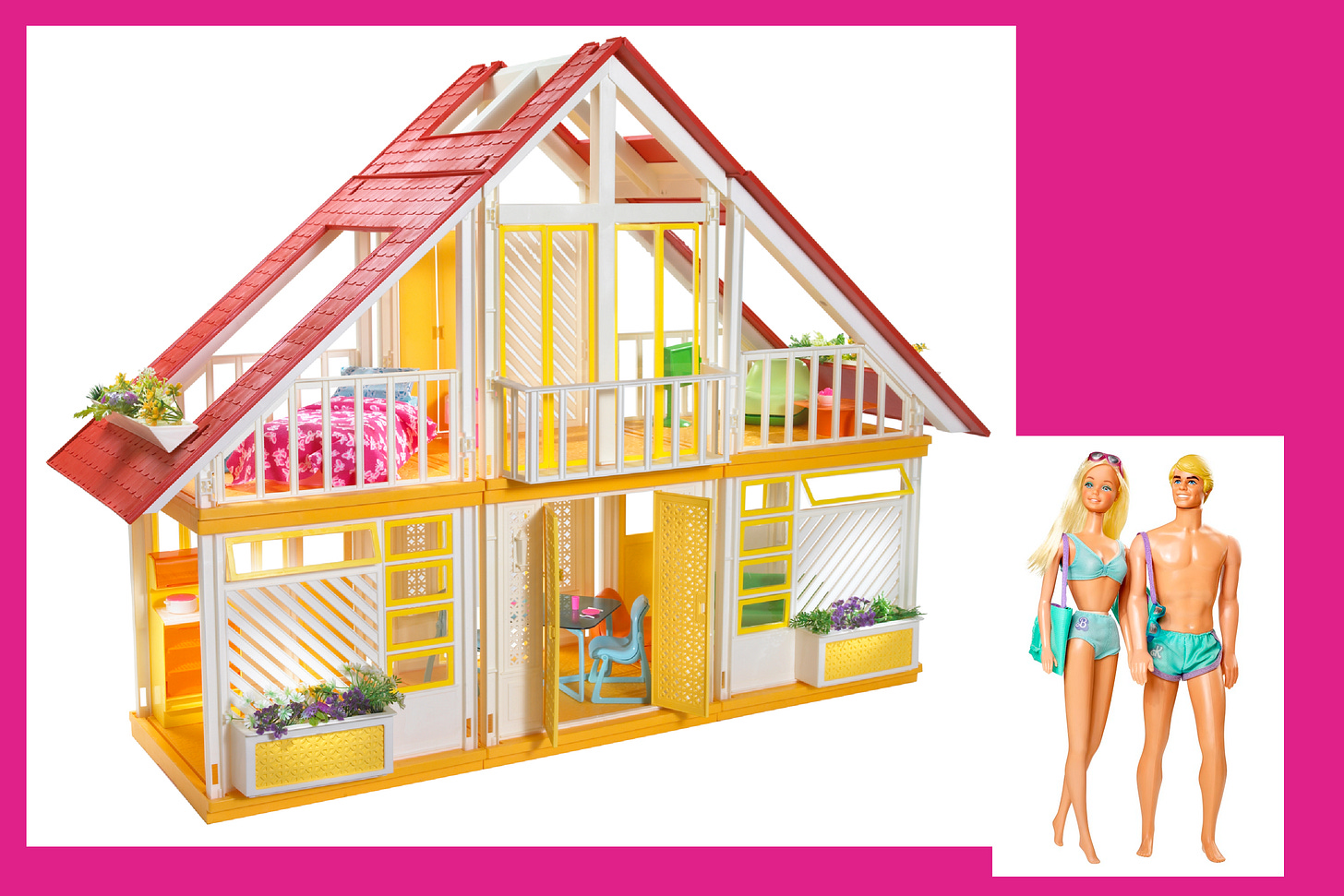

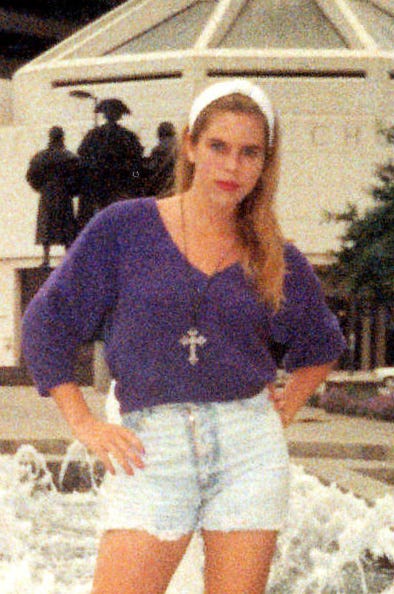

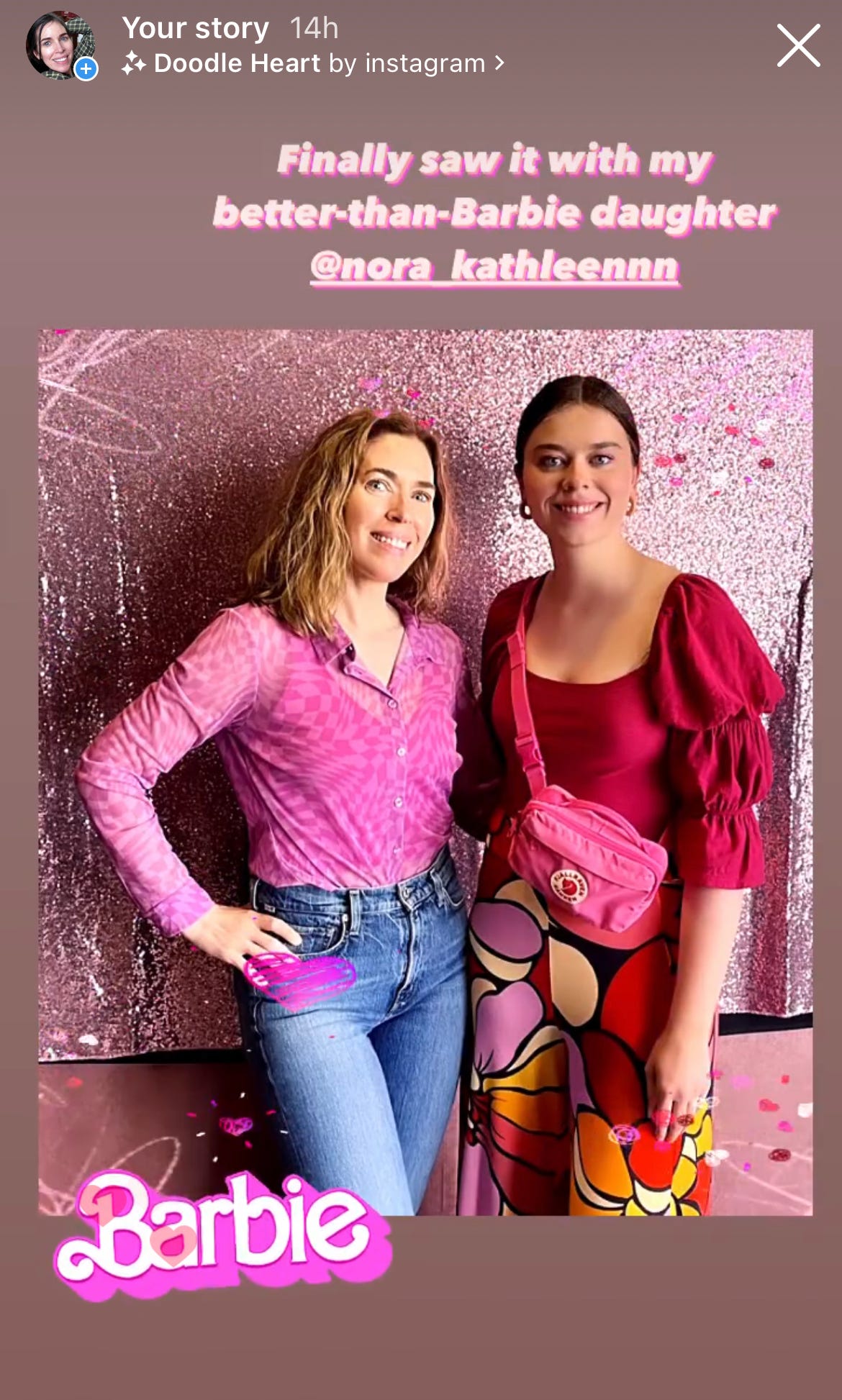


I love this essay! Thank you for it and happy to have found you through The Matriarchy Report.